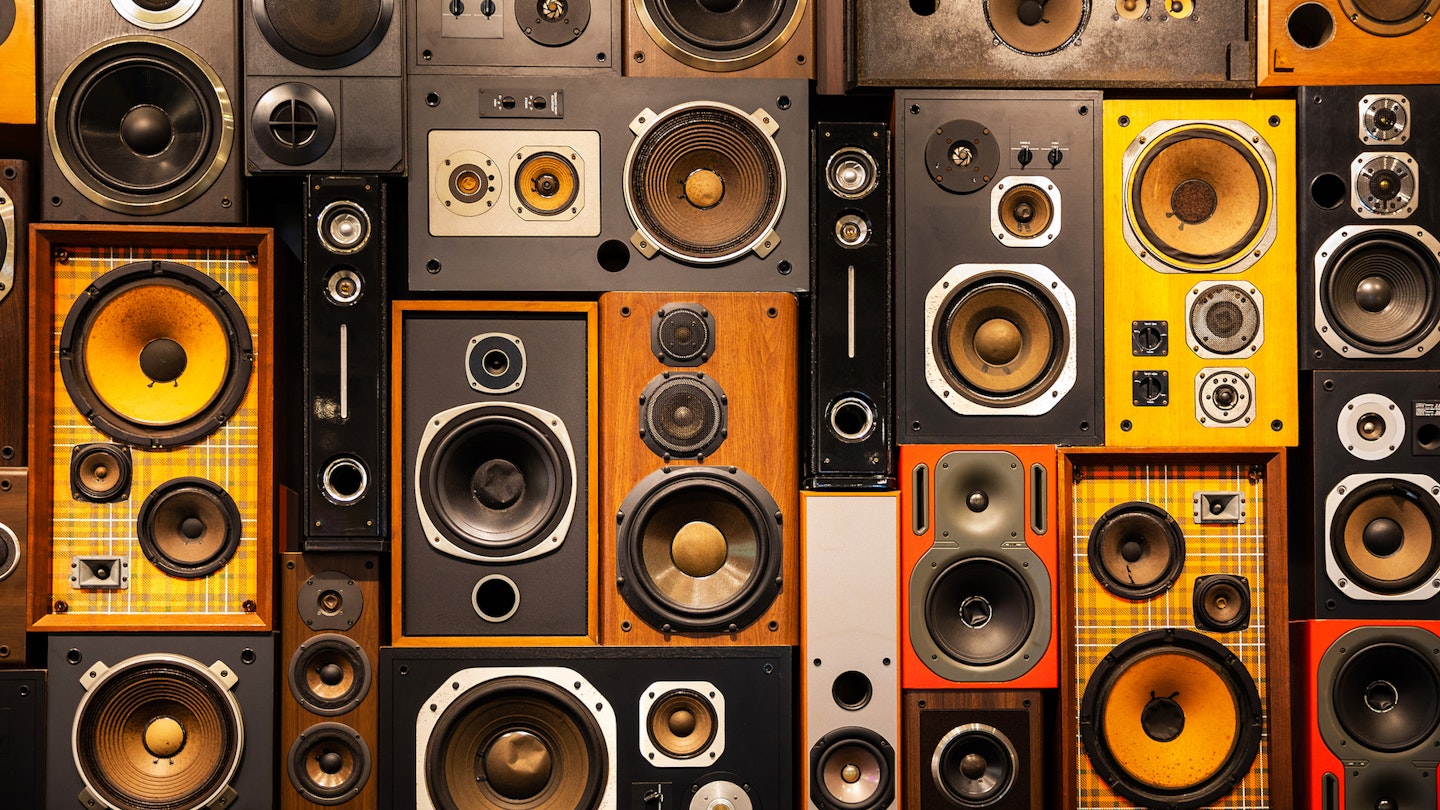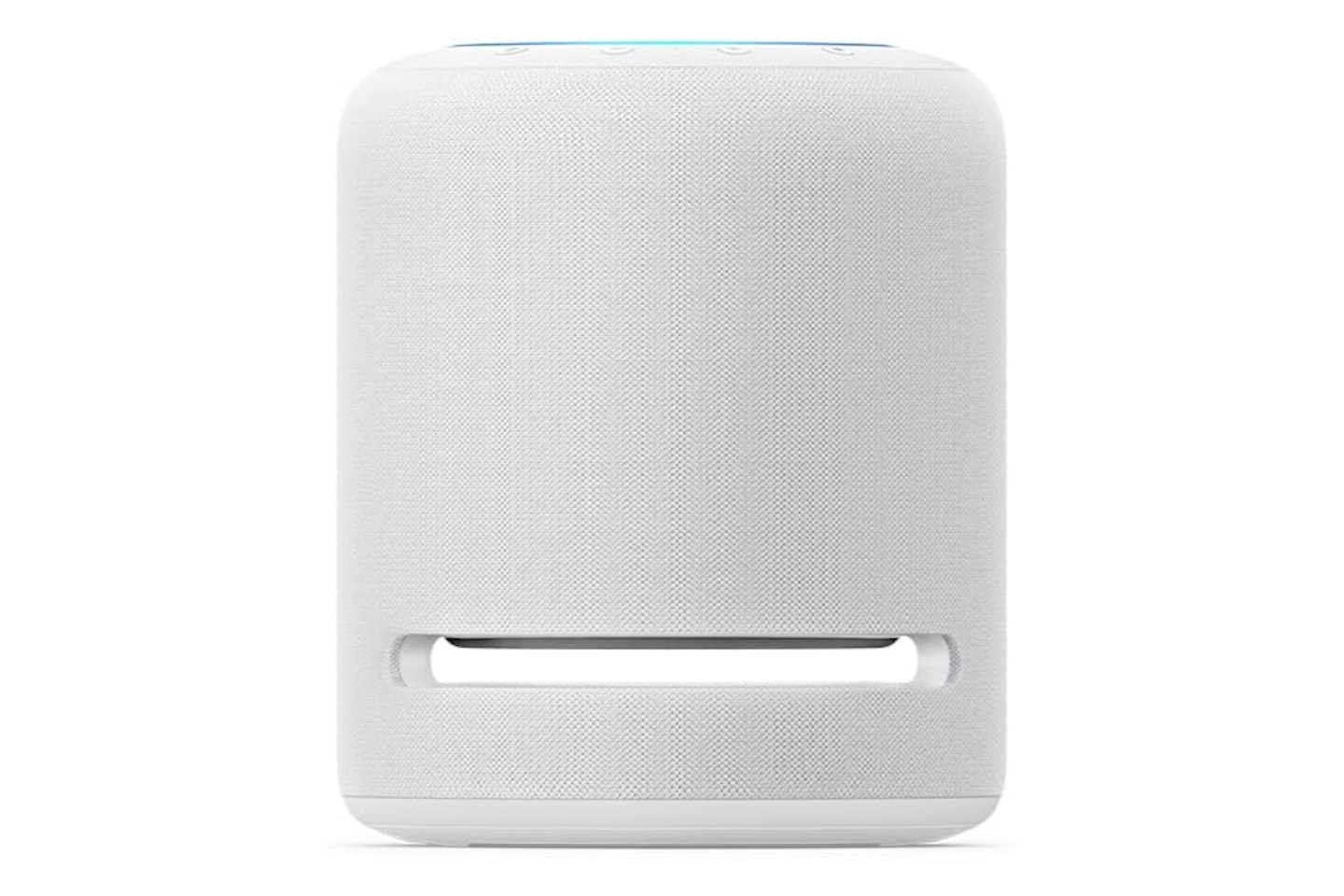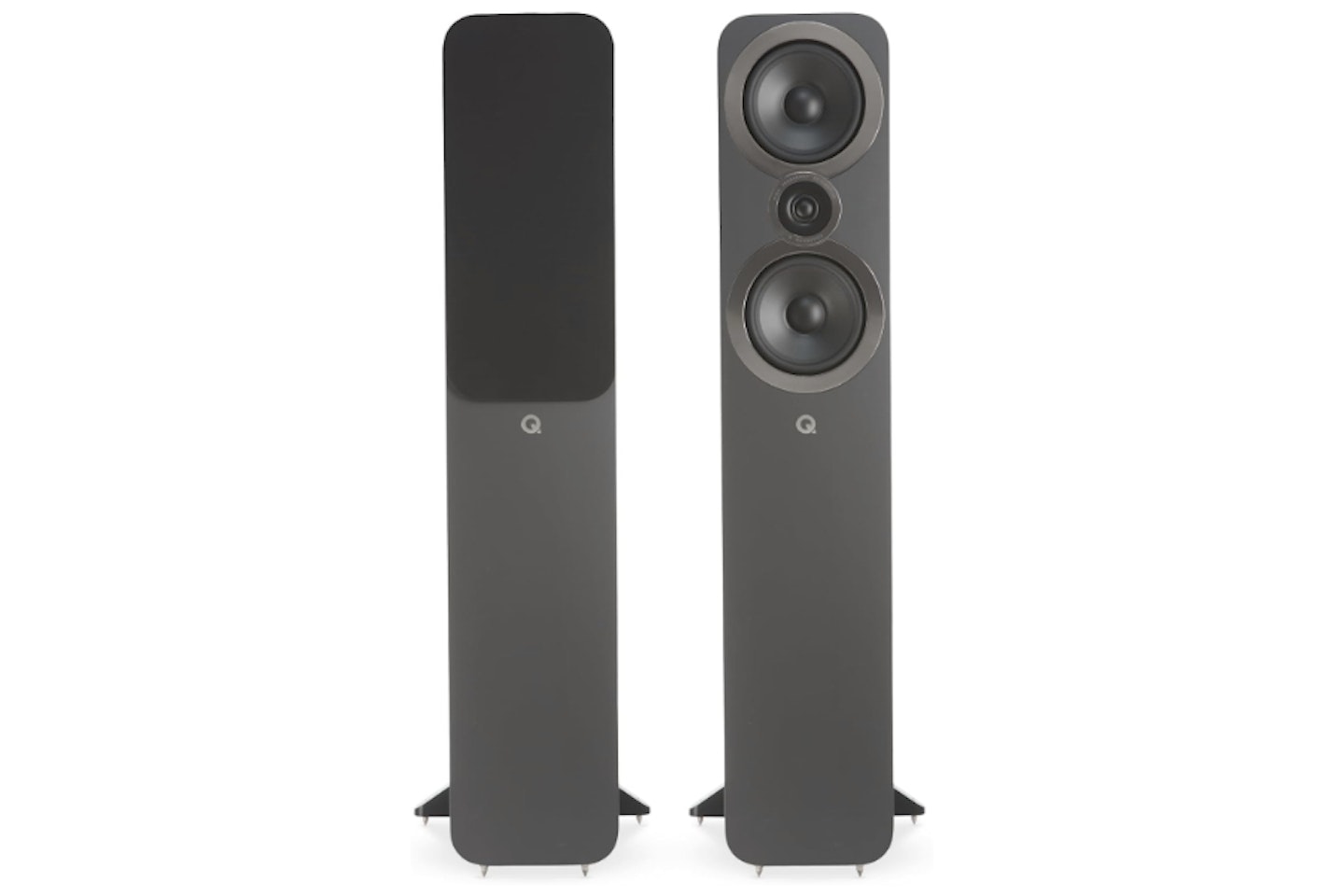It doesn’t matter what you’re listening to - be it one of the first 45s you ever purchased, a heavyweight 180 gram vinyl reissue of one of your all-time favourites or your latest Bandcamp purchase - your music deserves speakers that can do it justice.
MOJO are here, then, to deliver our pick of the best speakers out there in 2023. A selection that, crucially, shouldn’t bust the bank, either.
The best speakers at a glance:
• Best overall: KEF Q350 - View at Amazon
• Best budget hi-fi: Cambridge Audio SX-50 - View at Amazon
• Best wireless: Marshall Woburn III - View at Marshall
• Best portable: Marshall Middleton - View at Amazon
You may be asking yourself whether upgrading your speakers is worth it - those hi-fi separates were good when you bought them 15 years ago, so what’s wrong with them now?
One of the most significant improvements you’ll notice when upgrading your audio setup is the ability to maintain quality and clarity at any volume. All too often, speakers sacrifice sound quality when turned up to higher volumes. The bass becomes distorted, and the highs screech and lose their crispness. All the speakers we’ve selected below provide exceptional sound performance across the entire volume spectrum. Whether you prefer to listen softly in the background or crank up the volume, these speakers consistently deliver impressive sound without compromising quality.
In our testing of modern speaker systems, another thing that has consistently impressed us is that bigger doesn’t always mean better. The compact size of these speakers belies the incredible technology packed within them. Manufacturers have fit advanced audio components into small boxes without sacrificing sound quality.
So, don’t underestimate the power and performance of compact speakers—they punch well above their weight and provide an immersive audio experience that will leave you impressed.
MOJO's Best Speakers In 2023
The best speakers overall
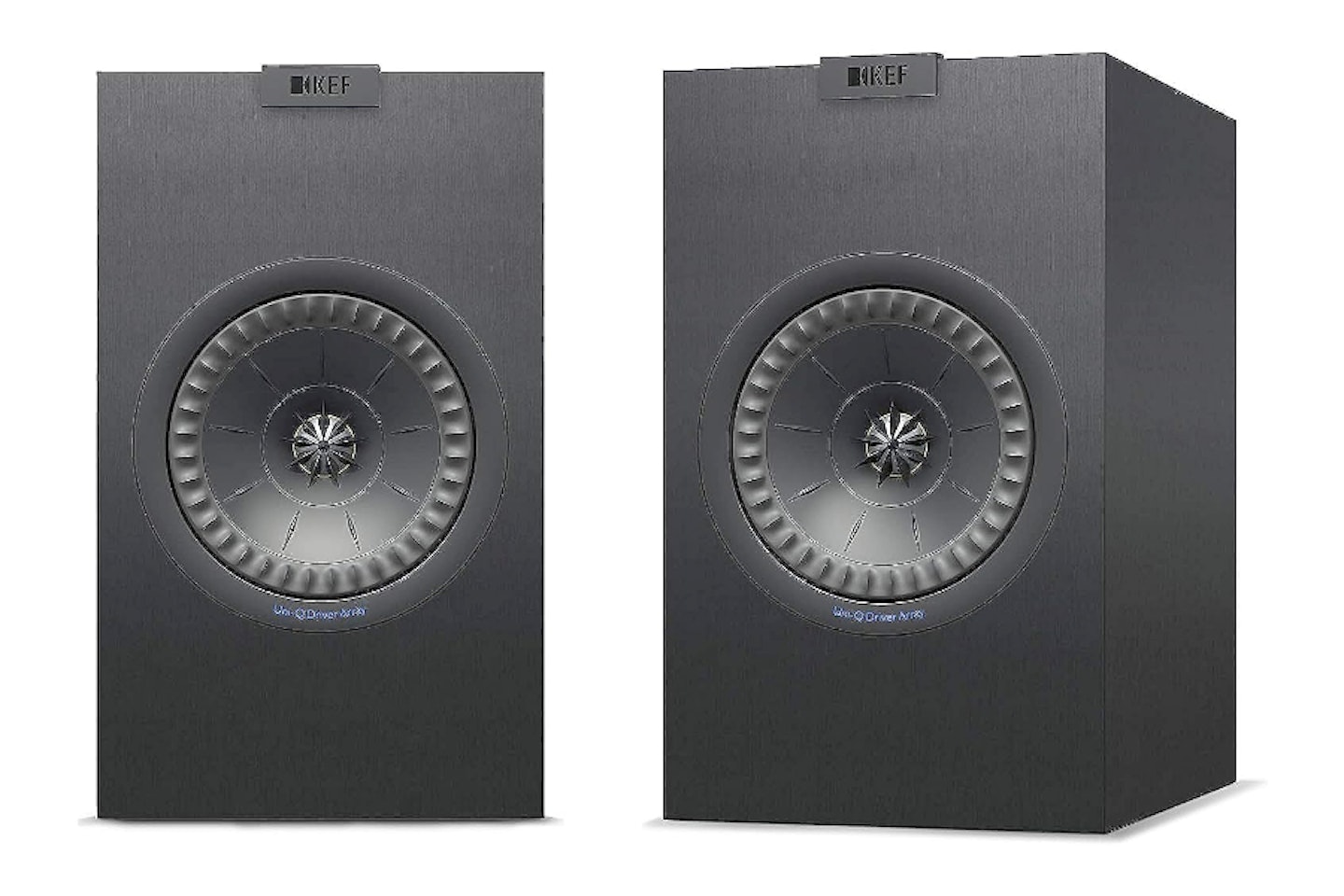
Though a seemingly insurmountable task, KEF has done it: a speaker pair adept at almost every genre of music you can throw through them.
KEF’s long-established authority in speaker building and a few fresh innovations are the secrets to this success. The most important is the company’s Uni-Q design technology that places the treble unit in the woofer’s centre. The result? A broad and unified sound field that’s exceptionally well suited to stereo listening.
Generously, KEF has stolen its own premium ranges to deliver the fabled Z-Flex woofer, known for its well-defined and detailed sound. Fuss-free aesthetics round off this package nicely, too.
What really speaks to us is that the balance of price and performance you find with the KEF Q350 shows that they are made to be enjoyed. These are not targeting gear-focused audiophiles but those who first fell in love with the music. Place these alongside your turntable, pick out your favourite pressing and have a wonderful time.
Pros
- Affordable and excellent KEF audio
- A good size for most rooms
- Fuss-free design
Cons
- Will need backup in larger rooms
| Driver | 6.5-inch Uni-Q Driver Array |
| Response | 63Hz - 28kHz |
| Amp needed | 15-120W |
| Sensitivity | 87dB |
| Nom. Impedance | 8 ohm |
| Size | 14.3 x 8.3 x 12 inch |
The best budget hi-fi speakers
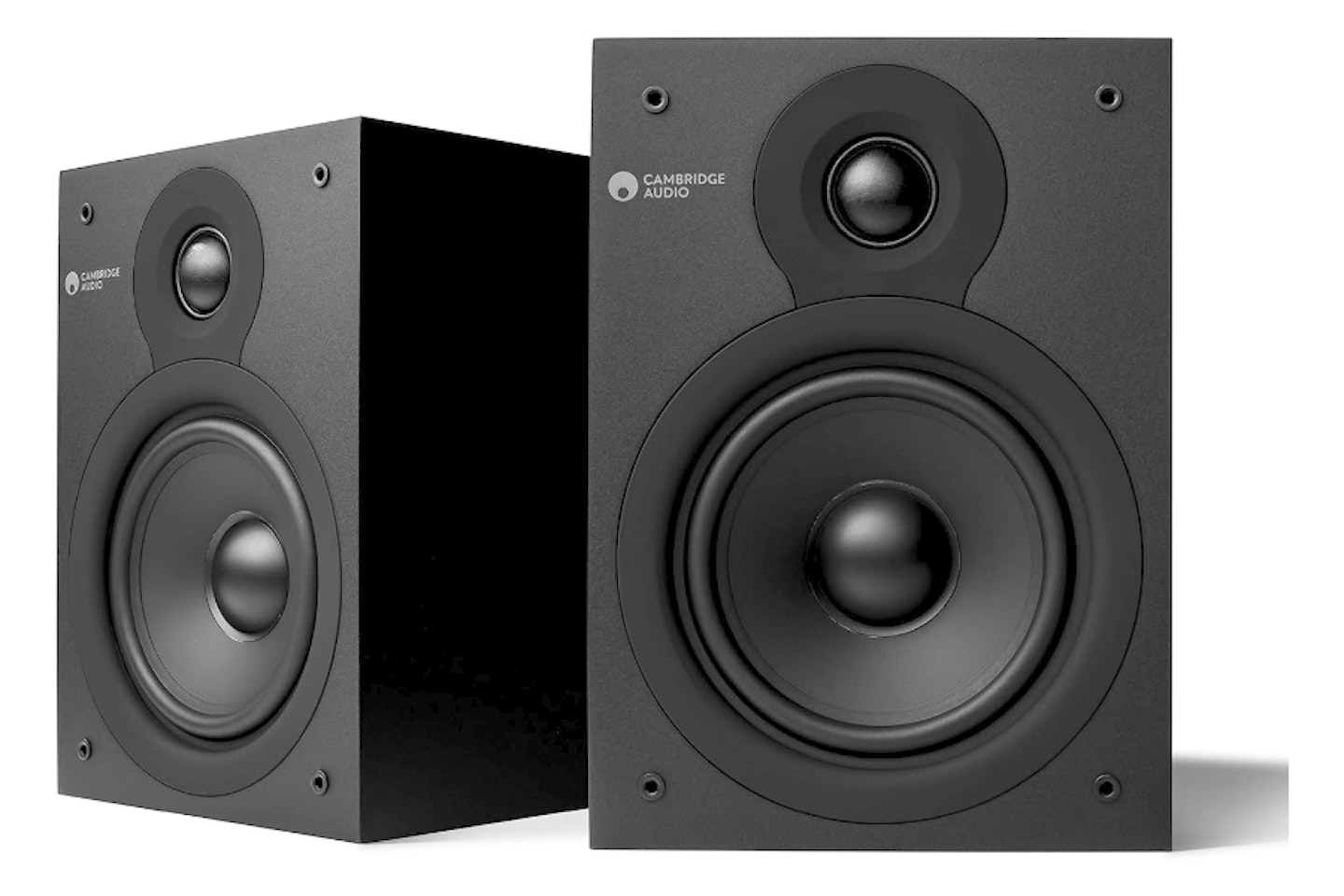
Confounding owners of high-end audio setups worldwide, British-based Cambridge Audio has garnered a reputation for delivering quality on a relatively tight budget. Continuing this run, Cambridge Audio has produced the SX-50 bookshelf speakers.
Appearing to follow the age-old design idiom, ‘Keep It Simple, Stupid’, Cambridge Audio has the compact-sized SX-50 wielding soft dome tweeters made from treated silk alongside 135mm cones. There’s no fancy tech here; the SX-50 simply provides a well-balanced, poised and precise audio experience. The bass is delightful, but Cambridge Audio subwoofer units are available separately if you want to pump this up further.
If you’re trying to reign in your budget for your new speaker set, the SX-50 will have your foot tapping and your wallet smiling.
Pros
- Compact
- Affordable hi-fi speakers
- Wall-balanced sound
Cons
- Louder speakers are available
| Driver | 5.25” (135mm) treated paper cone woofer 1” (25mm) Silk dome tweeter |
| Response | 50Hz-22kHz |
| Amp needed | 10-100W |
| Sensitivity | 87dB |
| Nom. Impedance | 8 ohm |
| Size | 8.9 x 6.3 x 9.4 inch |
The best wireless speaker

www.marshallheadphones.com
Perhaps unsurprisingly, a mainstay amplifier brand remains a mainstay speaker brand. The Marshall Woburn III is MOJO’s favourite wireless speaker because it’s loud, full of rich mid-range and stylish as anything else available today.
Building on the bones of its ancestor, the Woburn II, the Woburn III packs an extra pair of cones to handle the tonal gap between bass and treble. The result is a quality sound profile with clarity to spare and, in true Marshall style, an organic warmth. A further strength of the Woburn is that the audio quality remains present at all volumes - which is good because this thing kicks out quite the racket when needed.
Most of the time, you’ll want to connect via Bluetooth for convenience. However, there is an HDMI ARC input to hook the Woburn III into your multimedia setup.
Pros
- Precise but fun sound
- Great quiet, better loud
- Timeless design
Cons
- Large - you’ll need a bit of space going free
| Speaker, power and amps | Bass reflex, one 90 Watt Class D amplifier for the woofer, two 15W Class D amplifiers for the mids, two 15 Watt Class D amplifiers for the tweeters |
| Response | 35Hz - 20kHz |
| Amp needed | n/a |
| Sensitivity | 100.5dB |
| Size | 15.7 x 12.5 x 8 inch |
The best portable speaker
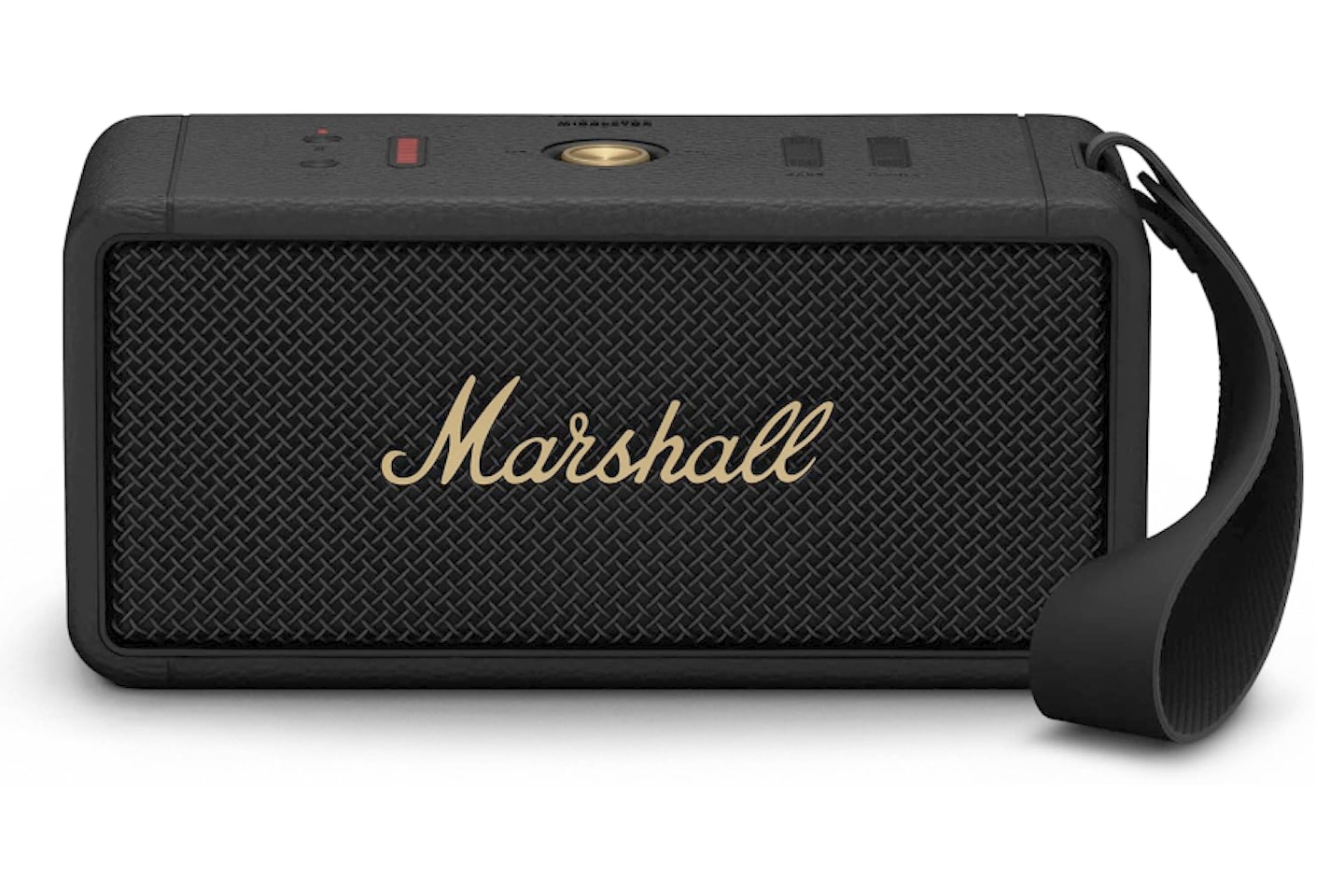
Organic and rich, whether on low or full blast, the audio performance of the Marshall Middleton is a true delight, with a complete and precise bass profile balancing well with clear mids and highs. Considering that Marshall has shared the stage with everyone from Jimmy Page to Graham Coxon, it shouldn’t be surprising that the speaker delivers extraordinary things with guitar-led music. But no matter your genre preference, the Middleton will provide the goods.
The fantastic audio capabilities are down to Marshall ramming two tweeters, two woofers and two passive radiators into this small shell. As a result, the Middleton can push out genuine stereo sound - a claim that only a few portable speakers of this size can make. The authentic stereo experience gets reinforced by ‘True Stereophonic’, which is some digital wizardry responsible for adding a more 3D experience to the speaker.
Bluetooth and 3.5mm connections are all onboard, as are bass and treble control. If you’re so inclined, there’s a companion app, but it’s not strictly necessary. Topping all this off is a killer style and a 20-hour battery life.
Pros
- Excellent audio quality
- Stereo sound
- Long battery life
Cons
- Portable but still heavy
| Driver | Two 3” 15W woofers, two 3/5” 10W tweeters, two passive radiators |
| Response | 50Hz - 20kHz |
| Sensitivity | 87dB |
| Battery | 20-hours |
| Size | 4.3 x 9.1 x 3.7 inch |
| Weight | 1.8kg |
The best multiroom speaker
Streaming your day’s playlist to any room in the house is the kind of sci-fi we like here at MOJO. There are plenty of multiform options on the market. Still, the Echo Studio stands out for its 5.1 speaker arrangement and digital surround programs, giving a 3D-like realism to the audio played.
One of the cleverest features is its auto-configuration, which runs a short program to discover the best sound profile for the Echo Studio’s location in a room. So, you’re always guaranteed the best audio experience. The audio is robust, with a bass response that kicks, and the additional smart features that give voice control over what you are listening to are a real luxury.
The Echo Studio won out over the Sonos One, which we could just as quickly recommend and features built-in Alexa functionality. However, the Echo Studio reigns supreme in multiroom speakers due to its user-friendly interface and effortless setup process.
Pros
- Huge sound
- Easy to set-up
- All the mod-cons of a smart speaker
Cons
- For the best sound, dedicated speakers are recommended
| Driver | Three 51 mm midrange speakers, a 25 mm tweeter, a 133 mm woofer with bass aperture |
| Size | 206 x 175 mm (height x diameter) |
The best bookshelf speakers
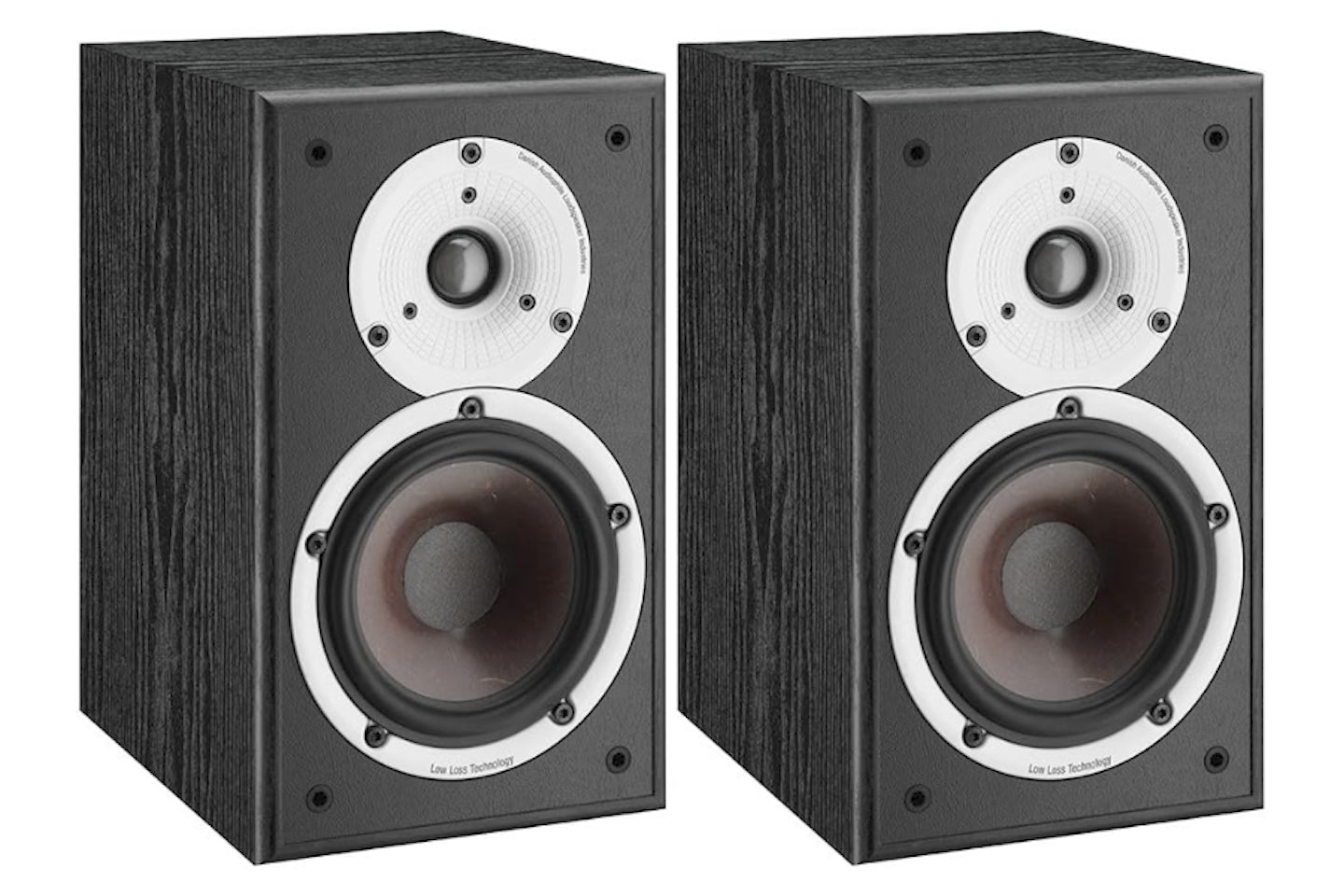
Some mock the idea of a bookshelf speaker, and the DALI Spector 2 scoffs in return. Cleverly designed to avert some of the issues sub-par bookshelf speakers encounter, the Spektor 2s prevent clashing harmonics and muddied frequency ranges by having well-spaced domes and tweeters. What this means for listeners is that there’s a very decent soundstage - each instrument having a defined space, allowing their performances to carry across in balance with others in the arrangement.
Due to the impressive audio performance, particularly on the bass, these are an excellent choice for a medium-sized room.
There are just two things to note. DALI recommends letting them run in for around 100 hours because that’s when you’ll hear the sound settle in. Also, to reinforce DALI’s approach to the soundstage, it’s suggested that the speakers aren’t angled but sit square to one another - something to consider, depending on your intended arrangement.
Pros
- Superb room-filling audio
- Compact bookshelf design
- Wide soundstage
Cons
- Patience is needed for the sound to run in
| Driver | 6.5-inch Uni-Q Driver Array |
| Response | 54Hz - 26kHz |
| Amp needed | 25-100W |
| Sensitivity | 105dB |
| Nom. Impedance | 6 ohm |
| Size | 11.49 x 6.7 x 9.3 inch |
The best premium wireless speakers
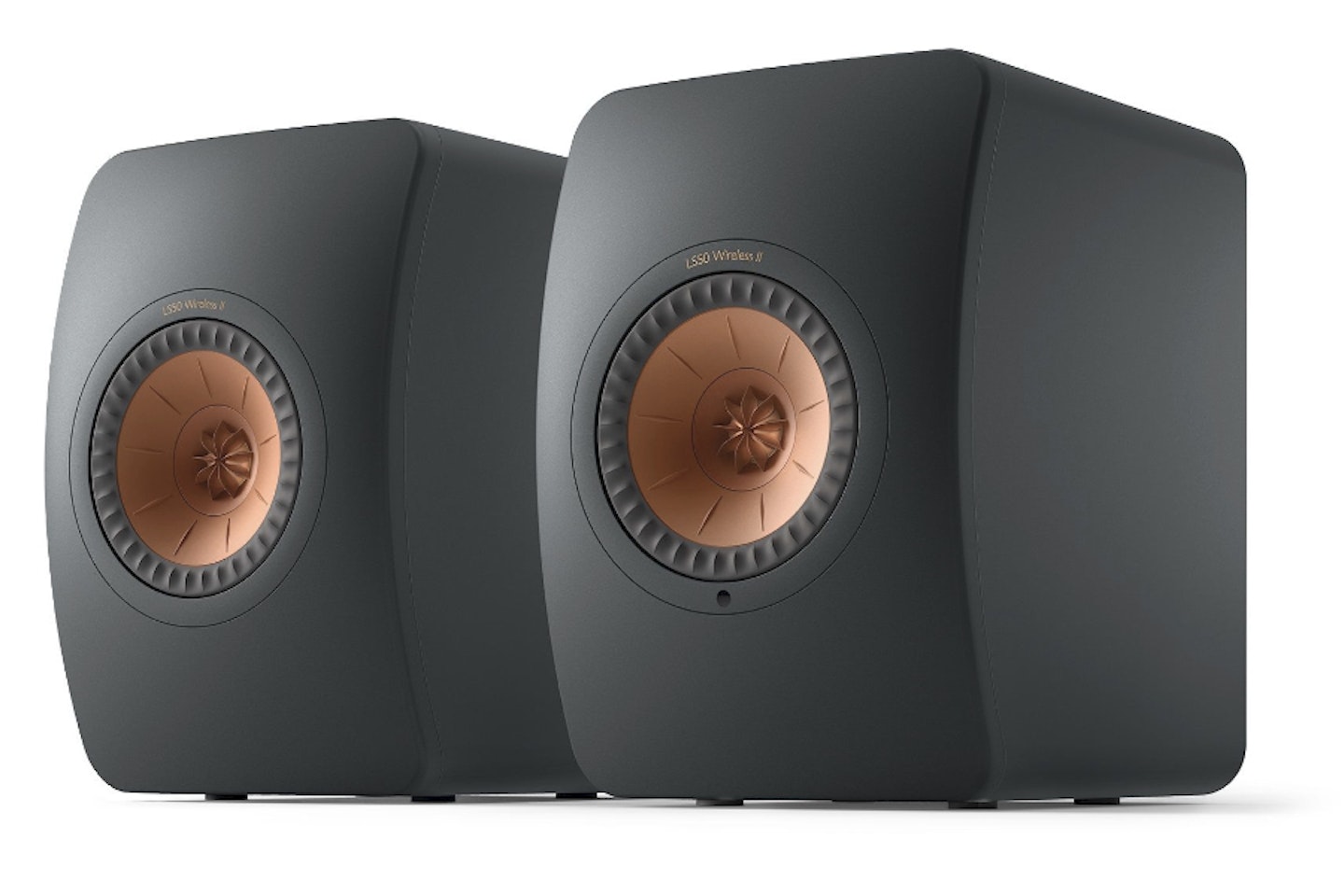
www.smarthomesounds.co.uk
The KEF LS50 Wireless II are a pair of wireless speakers. But they are also so much more - the engineers at KEF HQ have earned their payslips here.
The basic way of using the LS50 Wireless II is to set them up for a true stereo effect. As an active speaker system, they can be used in a minimalist, clutter-free turntable setup via a wired connection. Nice and simple.
But equally, the wireless tech means it’ll link up with Amazon Music, Spotify, Apple Music and many more - so you’re all set for some wireless tunes of the highest quality. They could even be part of a multi-room system if you’re adventurous.
There’s a good chance you’ll use the LS50 for all of the above, and maybe more, purely because of how good they sound. KEF’s Uni-Q speaker tech has paired with its Metamaterial Absorption Technology, eliminating 99 per cent of unwanted noise from the rear of the driver, resulting in a more natural sound. And last but not least, these pump out 200 watts per speaker. Legendary power and performance.
So long as the price tag doesn’t give you palpitations, these are a shining choice.
Pros
- Industry-leading sound
- Versatile connections
- Beautiful design
Cons
- Equal levels of enjoyment exist at lower prices
| Driver | Uni-Q Driver Array: LF: 130 mm (5.25 in.) aluminium cone, HF: 25 mm (1 in.) vented aluminium dome with Metamaterial Absorption Technology |
| Response | 40Hz - 47kHz |
| Sensitivity | 108dB |
| Size | 12 x 7.9 x 12.2 inch |
The best budget active speakers
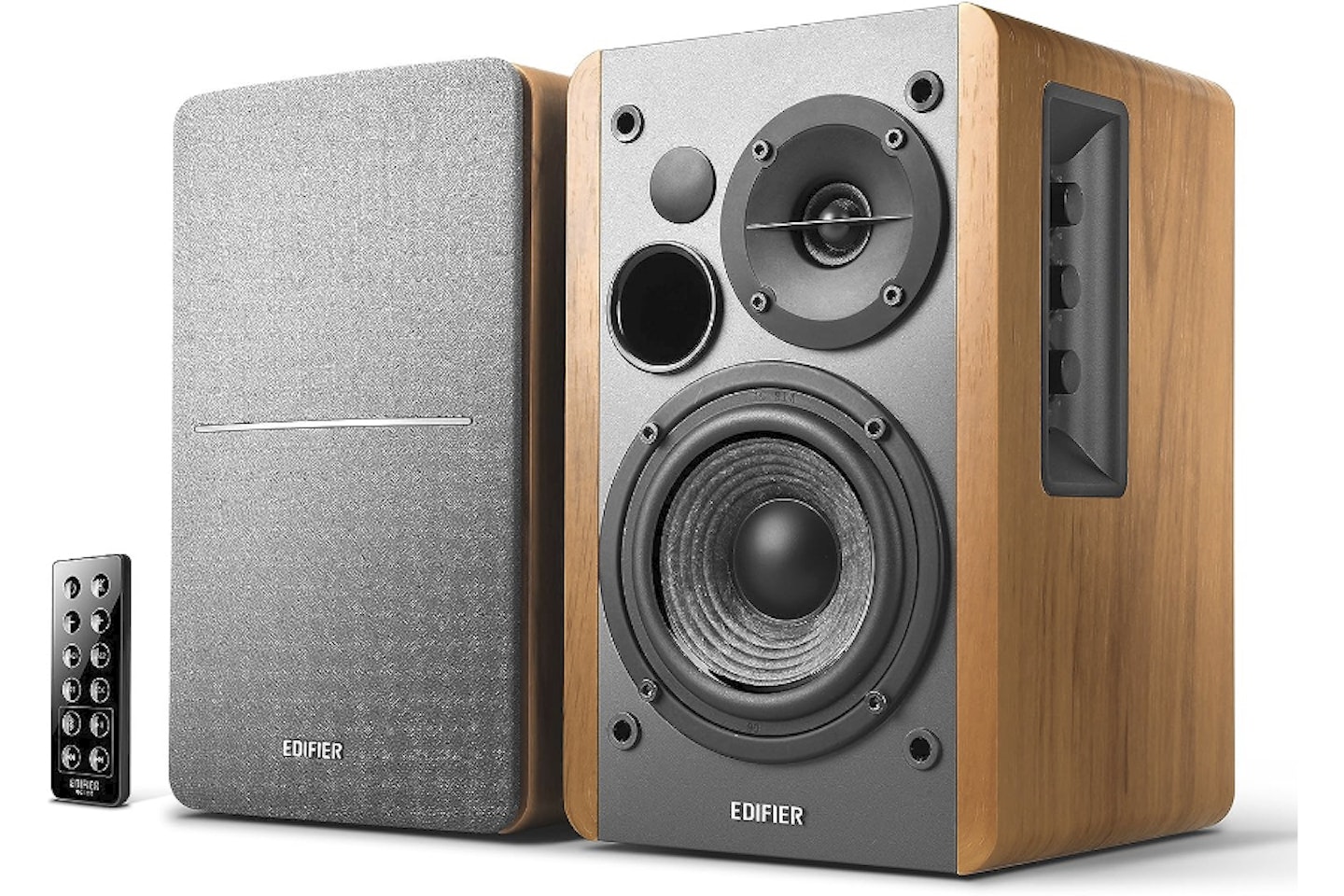
The Edifier R1280DB speakers are a bargain hunter’s dream - they do almost everything you could need at an unquestionably reasonable price. As active speakers, they can simplify your turntable setup, replacing the need for an external amplifier - that’s a little more cash saved. They carry Bluetooth, so you can play your digital catalogue as easily as your analogue.
But of course, all that isn’t very meaningful if they don’t sound the business, and thankfully, they do. Part wooden construction and quality cone materials mean the R1280DB has a surprisingly rich tone. And for those looking to fill the room with as much noise as possible, the volume rolls high, too.
Pros
- Rich sound
- No amp needed
- Bluetooth for extra versatility
Cons
- Not for audio purists
| Driver | 0.5'' Tweeter + 4'' Woof |
| Response | 55Hz - 20kHz |
| Sensitivity | 85dB |
| Nom. Impedance | 8 ohm |
| Size | 5.7 x 9.2 x 7.7 inch |
The best floor-standing speakers
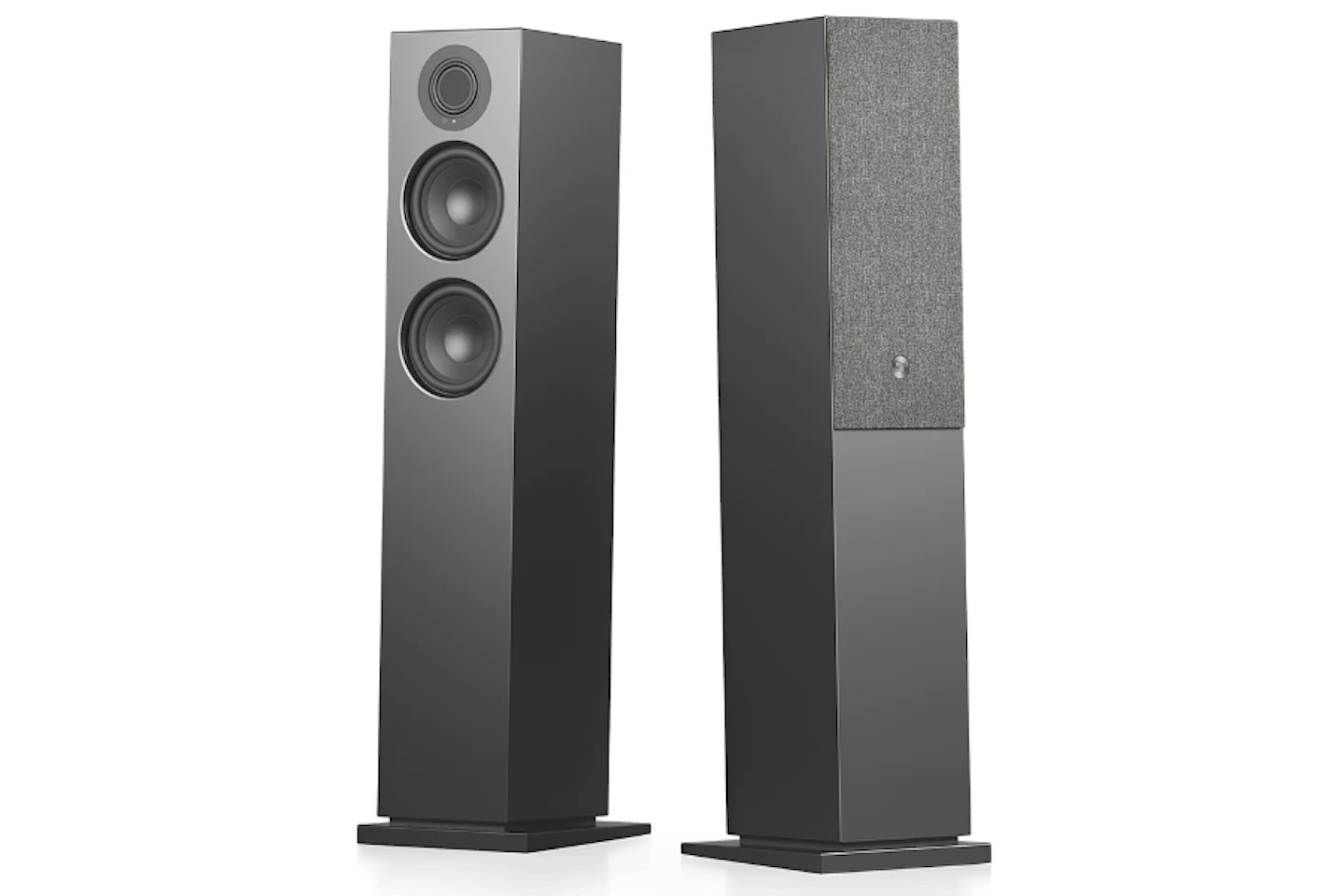
uk.audiopro.com
The Audio Pro A48 deserves the highest praise in our books for their outstanding sound quality and remarkable versatility. With Scandinavian design principles at heart, the A48 speakers possess a powerful, dynamic performance that fills any room with rich and intricately detailed audio. They excel in reproducing pretty much all music genres precisely and clearly, leaving a lasting impression.
The A48s can be used via wired or wireless connections and as standalone units or seamlessly integrated into a multi-room setup, not just some living room monoliths that’ll see little use. These are all about providing flexibility for different audio needs. The Audio Pro A48 is an exceptional choice of floor-standing speaker, delivering top-notch sound performance, impressive versatility, and user-friendly features. They are a worthwhile investment for those seeking a high-quality audio experience.
Pros
- Fantastic sound
- Huge versatility and has built-in amp
- Modest in size only
Cons
- The app could be better
| Driver | BMR, 5.25-inch woofers |
| Sensitivity | 87dB |
| Size | 34.2 x 8.5 x 10.4 inch |
The best budget floor-standing speakers
While the aesthetics of the Q Acoustics 3050i floor speakers will blend seamlessly into modern entertainment setups, their exceptional sound quality will make sure you don’t forget they are there. Q Acoustics has delicately balanced the tweeter’s highs and positioned it between the two mid and bass drivers, ensuring great harmonics for a powerful and precise performance that draws you into the music.
Masterfully navigating that razor-thin line between high energy and tastefulness, the 3050i speakers are an outstanding choice for those who want to enjoy their music ahead of all other considerations. To truly appreciate the lower end of your music, consider incorporating the Q Acoustics 3060s Active Subwoofer. This addition will give your audio setup a deep, barking bass response.
Pros
- Enjoyable sound
- Great design
- Excellent value
Cons
- The deep body might be a problem for some
| Driver | 6.5 in bass units, 0.9 in treble |
| Response | 44 Hz – 30 kHz |
| Amp needed | 25 - 100 W |
| Sensitivity | 91dB |
| Nom. Impedance | 6 ohm |
| Size | 40.1 x 12.2 x 12.6 inch |
How to improve your speaker sound
There are a few things we recommend trying out to get the most out of your new speakers.
Placement: Position your speakers symmetrically and around ear height, and make sure they point to where you’ll be listening from. Don’t place them too close to walls or corners; this can play havoc with the bass. Each room is different, so experiment with speaker placement to find your best position.
Room acoustics: Speakers sound better when not playing in an empty, echoey space. Improve the acoustics of your listening space by adding soft furnishings, curtains, rugs, or even acoustic panels if you’re feeling hardcore.
Isolation: Use speaker stands or isolation pads to minimise vibrations and resonance. This helps prevent unwanted noise from the floor or furniture, so you should get a cleaner sound.
Where is the best position for my speakers?
The best place to put speakers depends on the room layout and personal preference. However, a common recommendation is to position speakers symmetrically along the longer wall of the room, facing towards the listener, while avoiding placement too close to walls or corners.
Do I need an amp?
Whether you need an amp depends on the type of speakers you have. Passive speakers require an external amplifier or receiver, while active speakers have built-in amplifiers, so you don’t need a separate amp. Check the specifications of your speakers to determine if an amp is necessary.
Passive speakers versus active speakers
Passive speakers require an external amplifier or receiver to power and drive the speakers. The amplifier receives and amplifies the audio signal to a level that can drive the speakers effectively.
Active speakers have built-in amplifiers, which means they can be connected directly to a source without needing an external amplifier. The amplifier is integrated within the speaker enclosure, simplifying the setup and reducing the need for additional equipment.
Bass, midrange, and treble
Bass, midrange, and treble are three fundamental components of audio frequency ranges.
Bass refers to the low-frequency sounds, such as deep tones from drums or bass guitars.
Midrange encompasses the middle frequencies, including vocals and most instruments.
Treble represents high-frequency sounds, like cymbals or high-pitched instruments.
Adjusting these elements in your setup allows you to fine-tune the characteristics of the sound.
Drivers, tweeters and woofers explained
Drivers are the components within a speaker responsible for converting electrical signals into sound waves. They play a crucial role in producing accurate and high-quality audio reproduction. Two common types of drivers are tweeters and woofers.
Tweeters handle high-frequency sounds sitting in the 2,000 Hz to 20,000 Hz range. Also referred to as treble, this range includes vocals, cymbals, and other high-pitched instruments. Tweeters are usually small and use light diaphragms, such as fabrics, silk, or metal domes, to accurately reproduce these delicate sounds with clarity and detail.
Woofers are responsible for reproducing low-frequency sounds, including bass tones and midrange frequencies, which sit between 40 Hz and 2,000 Hz. Woofers are larger than tweeters and employ stiffer diaphragms, such as paper, plastic, or other materials, to handle the power required to produce deep, impactful bass notes.
By combining tweeters and woofers in a speaker system, speakers aim to cover the audible frequency range, providing a balanced and accurate audio reproduction. The balance between these drivers decides how well-rounded the listening experience will be.
BECOME A MOJO MEMBER today and receive every new issue of MOJO on your smart phone or tablet to listen to or read. Enjoy access to an archive of previous issues, exclusive MOJO Filter emails with the key tracks you need to hear each week, plus a host of member-only rewards and discounts.
